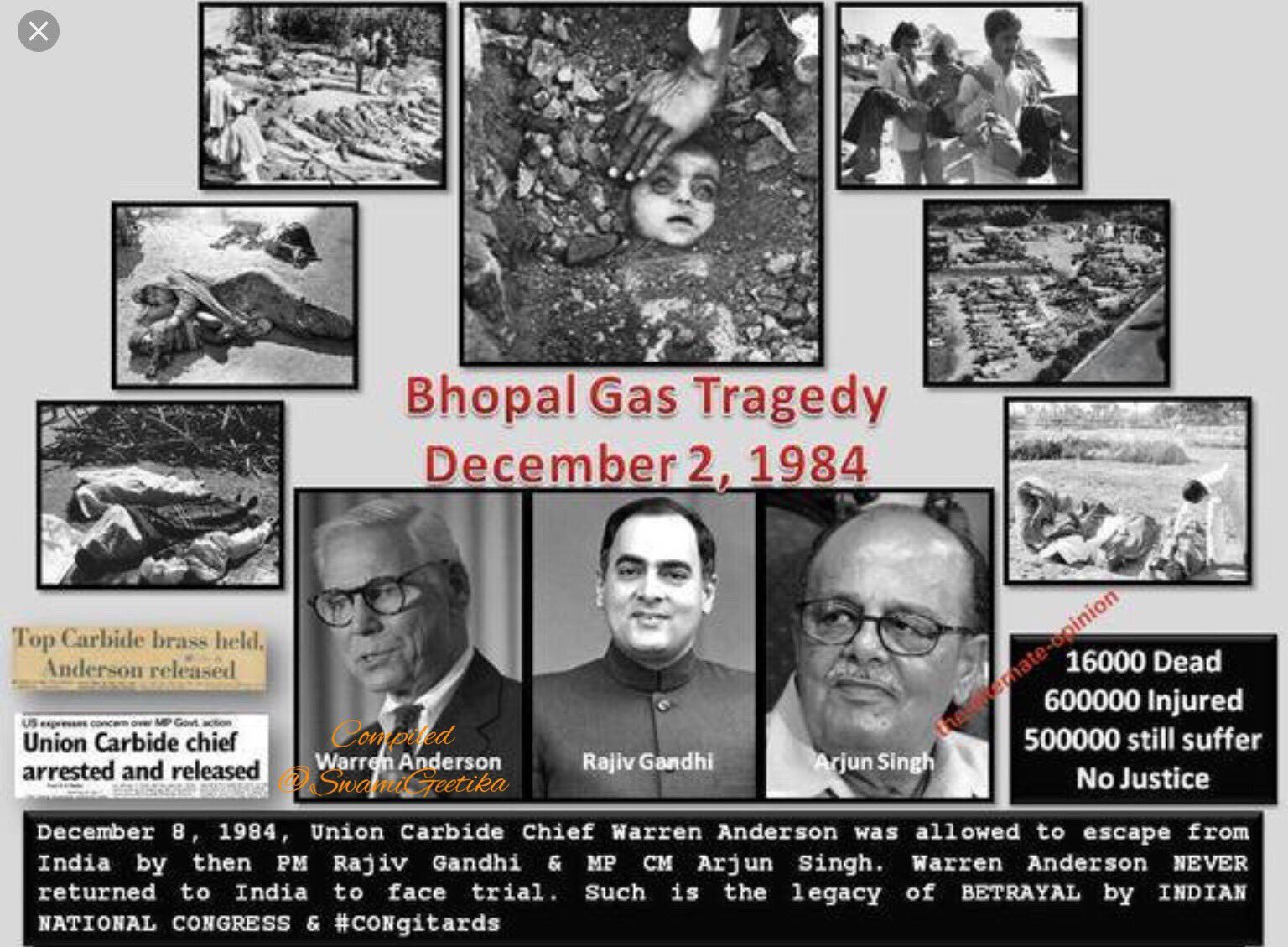
Bhopal Gas Tragedy: Congress and Rajiv Gandhi's Role in Warren Anderson’s Escape
The Bhopal Gas Tragedy stands as one of the most devastating industrial disasters in history, intertwining with allegations of political collusion involving Congress leaders, particularly then-Prime Minister Rajiv Gandhi, in the controversial escape of Warren Anderson, head of Union Carbide Corporation (UCC). This alleged orchestrated escape may signify a deep-seated quid pro quo arrangement, linking Anderson's departure to the release of Adil Shahryar, a convict in the U.S.
Multiple reports claim where Congress leaders, including Rajiv Gandhi, seemingly allowed Anderson to flee under dubious circumstances. The implication is that his safe passage out of India was possibly secured in exchange for Shahryar's release from prison. This alleged quid pro quo leads to questions about the motivations behind the government's actions at that critical moment.
As the investigations unfold, they reveal a complex interplay of corporate interests and political maneuvering. The notion that Anderson’s escape was facilitated not merely through bureaucratic processes but potentially as part of a significant political negotiation brings to light the murky waters of accountability and justice surrounding the Bhopal Gas Tragedy.
In essence, the legend surrounding Warren Anderson’s escape from Bhopal highlights potentially troubling intersections of power where Rajiv Gandhi and Congress leaders allegedly engaged in a quid pro quo agreement. This scenario poses critical questions about the integrity of political leadership during one of India's darkest hours.
